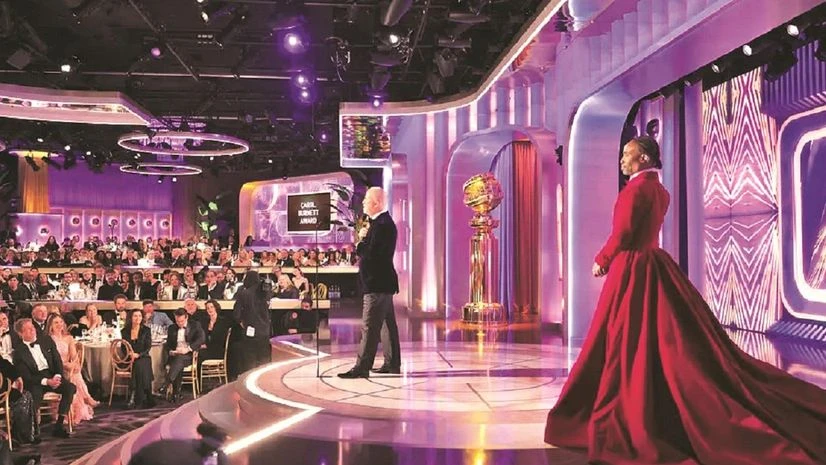Brooks Barnes
The Hollywood Foreign Press Association (HFPA), a group of entertainment journalists from overseas that, despite frequent missteps, built the Golden Globe Awards into a marquee event, died on Monday after a series of scandals. It was 80. The end of the embattled HFPA was announced after California officials agreed to a complicated reorganisation plan that will allow the Golden Globe Awards to continue.
Eldridge Industries, a holding company owned by the billionaire investor Todd Boehly, and Dick Clark Productions, which is part of Penske Media, agreed to buy the foreign press association’s Golden Globe assets for an undisclosed price. The proceeds will go to a new nonprofit, the Golden Globe Foundation, which will continue the HFPA’s philanthropic efforts; it gave more than $50 million to entertainment-related charities over the last three decades.
Members of the foreign press association — primarily freelance entertainment journalists — will become employees of a yet-to-be-named for-profit entity that will try to expand the Golden Globes as a brand, according to an Eldridge spokesman.
The former members (there are fewer than 100) will earn $75,000 annually for five years, with duties that include watching films and television shows and voting for the awards; and producing promotional materials, including writing articles for a Golden Globes website. It was unclear if the members could continue freelancing (mostly celebrity interviews) for publications overseas.
Also Read
The Los Angeles Times discovered in 2021 that the HFPA had no Black members, setting off an outcry in the entertainment industry that resulted in NBC cancelling the 2022 Globes telecast. The ceremony returned to NBC in January under a one-year agreement. Eldridge and Dick Clark Productions, which has produced the Globes telecast for decades, have since been looking for a new broadcast network or streaming service partner.
The 81st Golden Globe Awards ceremony has been scheduled for January 7. In a statement, Boehly called the dissolution of the HFPA a “significant milestone in the evolution of the Golden Globes.” He thanked the association’s former president, Helen Hoehne, for helping push through reforms, including “a robust approach to governance” that had helped professionalise an awards entity long known for infighting and scandal.
The foreign press association had long been viewed as unserious and slippery. In the late 1960s, the Federal Communications Commission had the Globes temporarily booted from the airwaves, saying it “misled the public as to how the winners were determined.” In the 1990s and 2000s, Harvey Weinstein, the since-imprisoned Miramax co-founder, manipulated the organisation in ways big and small — expensive gifts and special access to stars and his own time, at a moment when other studio chiefs could barely hide their derision. He was often rewarded with a stunning number of nominations.
Hollywood stopped turning a blind eye to the organisation’s failings in 2021, after the killing of George Floyd in police custody in 2020 prompted a national conversation about racism and inequity. More than 100 publicists closed ranks, refusing to make stars available for Golden Globe appearances and contributing to NBC’s cancellation of the 2022 telecast.
©2023 The New York Times News Service

)
